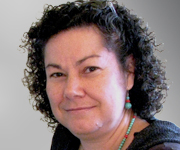ON a recent visit to Myanmar — a fascinating country emerging from a long period of military rule and international sanctions —a conversation about personal and institutional values struck a chord.
It was the words “courage” and “forgiveness” that particularly stirred me.
How often, I wondered, does either of those two words appear in the values statements of health care institutions?
For many employees, current experience in the public health system is characterised by quite different values — risk-aversion and punishment. When not practised well, clinical governance can appear to promote fear and inaction.
A human service cannot expect perfection from its workers — honest mistakes are inevitable and forgiveness is necessary at all levels, including self-forgiveness.
I have seen too many young and talented doctors and nurses, already tortured by errors they perceive as personal failures, be further traumatised by the reactive institutional process. This is a process that too often emphasises error while ignoring so much good.
Managers of our human services — at every level from government to clinician — need the courage to trust their skilled colleagues to provide what patients want and need, and to forgive others and themselves for imperfections.
Our society more broadly needs the courage to admit that things are good here, and to show compassion and forgiveness to others.
Those who would paint our universal health care system as “in crisis” or “Third World” could use the perspective of a country that lacks many of the basics that we take for granted. Error is not even an issue when there is no access.
In Myanmar, there is courage in abundance.
Political and social progress occur at a dizzying rate, although benefits for the large rural population will be gradual and slow. The country will have many challenges as changing political power bases and international commercial interests threaten both culture and sovereignty.
Forgiveness will be required as the fledgling government moves forward as a democracy, incorporating some of the leaders of the old regime.
Those of us watching from outside should exercise both courage and forgiveness in opening up to this beautiful but impoverished country, backing their will to move forward, and welcoming the Myanmar people into the international community.
At the same time we can learn to appreciate what we mostly take for granted in our health system.
Dr Sue Ieraci is a specialist emergency physician with 30 years’ experience in the public hospital system. Her particular interests include policy development and health system design, and she has held roles in medical regulation and management.
Posted 22 October 2012

 more_vert
more_vert
Not quite sure what Sue’s point is here.Courage and forgiveness would be helpful attributes when contemplating treatment in a third world medical systems as the expectation of high quality health care is unrealistic.The exhaustive examination of medical errors however uncomfortable and confronting is a nessesary and defining characteristic of high quality health care.Those who refer to the Australian health care system as third world do so almost always as a rhetorical devise.The use of the term “crisis” in the relation to the function of aspects of our health system is reasonable – the lack of inpatient mental health resourses in WA is a case in point.